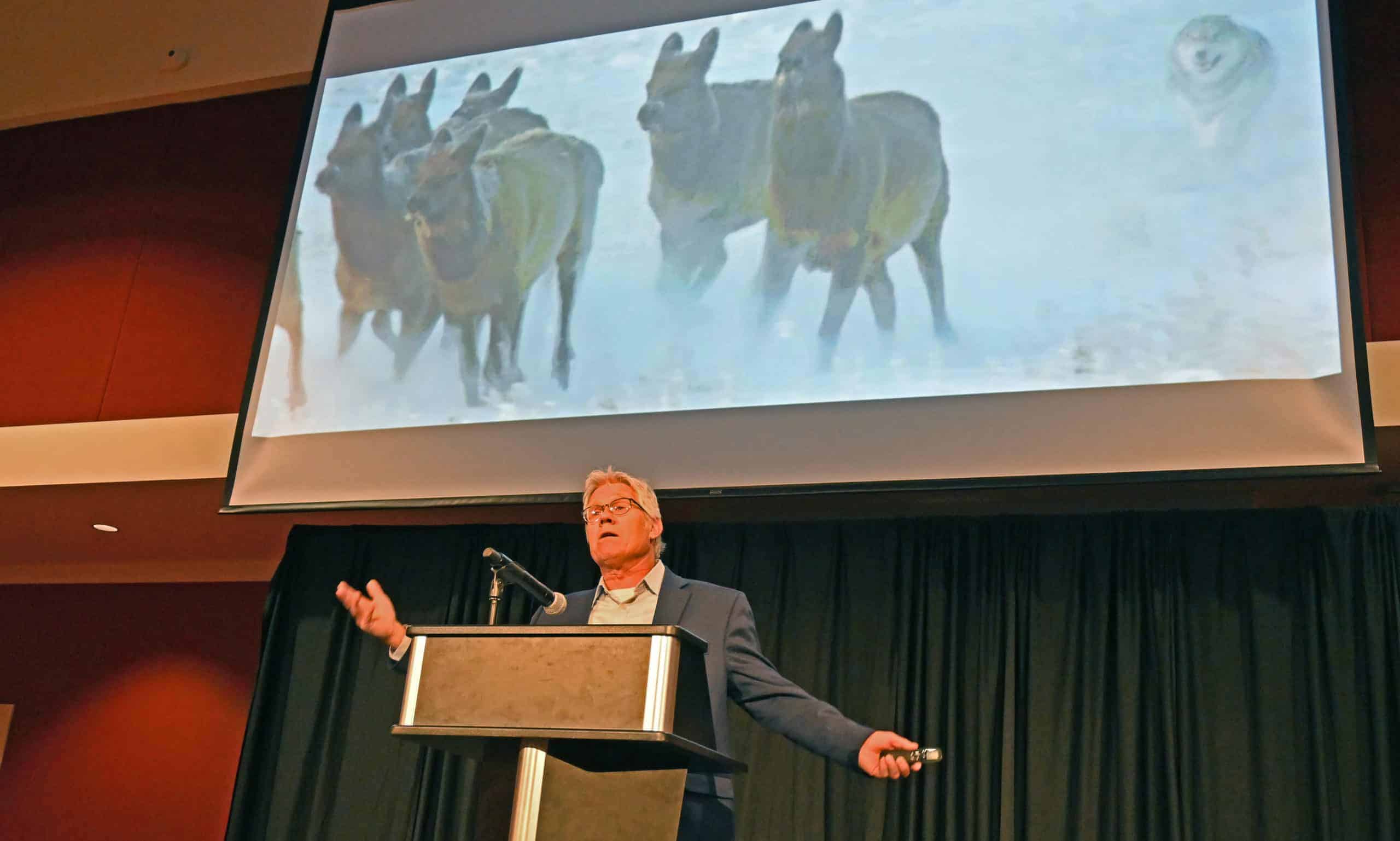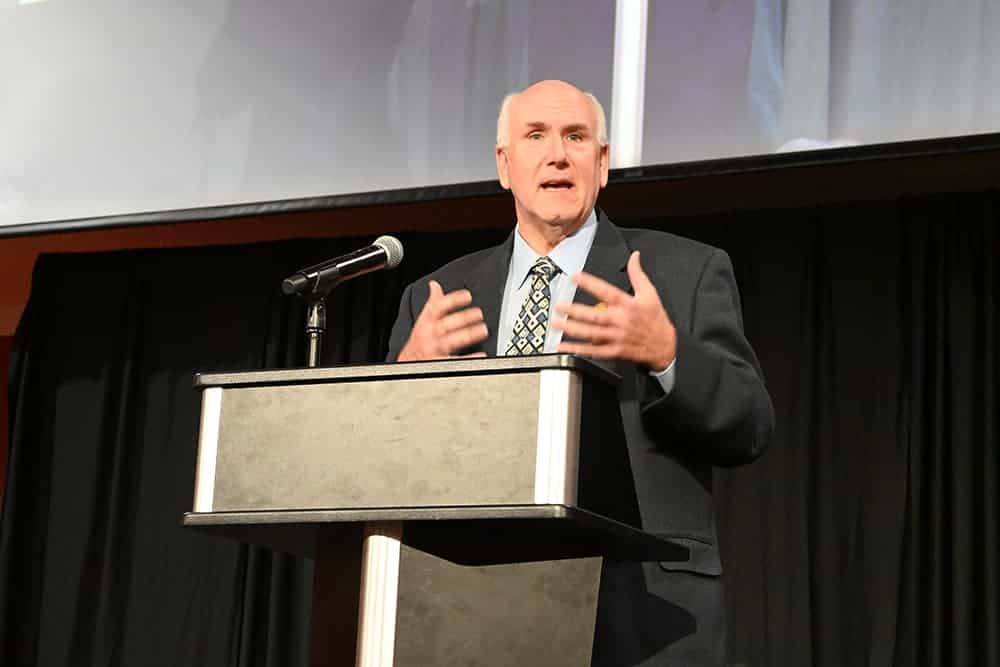Share this article
TWS2022: A salve for conservation wounds
The best way to heal the wounds of ecological degradation is through storytelling and political involvement, 2021 Aldo Leopold Memorial Award recipient Mike Phillips told wildlifers in his keynote speech at TWS’ 2022 Annual Conference in Spokane, Washington.
“I believe that the extinction crisis is one of Earth’s most threatening wounds,” Phillips said. “The losses are so severe that the certainty of nature is being stripped away, exhausting the lives of millions of creatures, great and small.”
The executive director of the Turner Endangered Species Fund, Phillips has devoted most of his career to wolf restoration. His lifetime contribution earned him TWS’ highest honor, named for Aldo Leopold, a TWS founding member often considered the father of wildlife management.
“Each year, The Wildlife Society’s Aldo Leopold Memorial Award honors those whose work embodies the spirit of this influential thinker,” said actress Glenn Close in a prerecorded video at the conference. “The Wildlife Society bestows its highest honor to recognize a wildlife professional for their distinguished service to wildlife conservation and their role as leaders in the profession.”
It wasn’t always honors that his colleagues bestowed on him. Phillips recalled seeing profanities about him spelled on a bathroom wall in Minnesota early in his career. He recognized the handwriting as belonging to a co-worker. “I left the bar that night convinced of doing two things,” he said. “I needed to be better at my outward displays of enthusiasm, and I needed to look for people who are as committed to the cause. I have been blessed with great teammates ever since.”

Aldo Memorial Award recipient Mike Phillips has devoted most of his career to working with wolf restoration. Credit: David Frey/TWS
Phillips stressed the need to be better at telling stories, to capture people’s attention and to get them to listen. He shared the importance of storytelling in his work of restoring red wolves (Canis rufus) in North Carolina in the mid-1980s and leading the Yellowstone gray wolf (C. lupus) restoration project. Centuries of storytelling had painted the wolf as a villain, he said, and storytelling would be needed to send a conservation message.
“Science makes it clear that the real wolf is not even a shadow of its mythical self,” Phillips said.
He also pointed out the importance of involvement in politics. This includes not only voting, working on behalf of candidates or being involved in TWS’ policy work. Phillips ran for election, serving six years in the Montana state House and eight years in the state Senate. “Acting on this decision was uncomfortable,” he said. “It required that I untethered myself from the secure and predictable moorings of wildlife conservation and fieldwork and jump headfirst into the unfamiliar and seemingly irrational mosh pit of politics.”
Because wildlifers can see the wounds of environmental damage, he said, it is also their duty to act. “By winning enough elections, we can arrest and reverse the extinction crisis,” he said.
Also at the address, John Koprowski, dean of the University of Wyoming’s Haub School of Environmental and Natural Resources and a professor emeritus at the University of Arizona, was recognized as this year’s Aldo Leopold Memorial Award recipient. He recognized the partnerships that have gotten him to where he is today.

John Koprowski, dean of the University of Wyoming’s Haub School of Environmental and Natural Resources and a professor emeritus at the University of Arizona, was recognized as this year’s Aldo Leopold Memorial Award recipient. Credit: David Frey/TWS
“We can’t do management, conservation, without partnership,” Koprowski said. “The ability to find good partners really is what makes the difference.”







